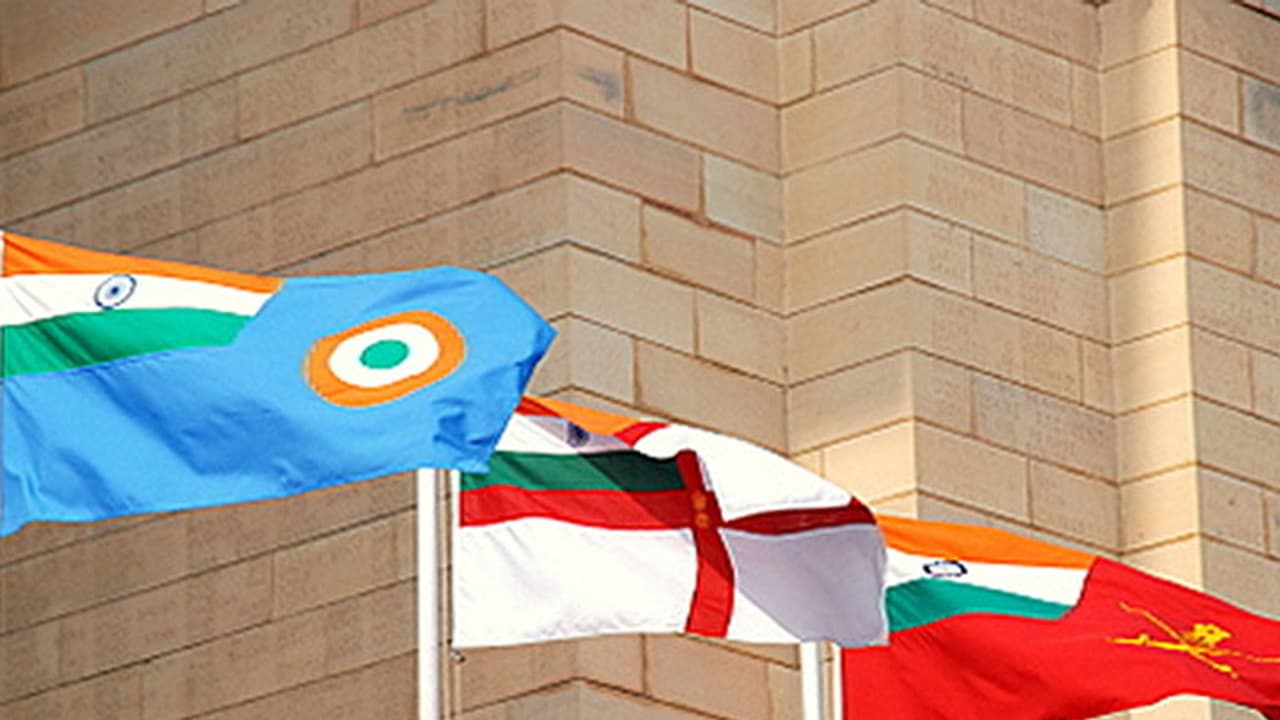The defence budget should have 2.5% to 3% of the GDP for the armed forces. In view of the current situation with Pakistan, the government should not reduce the combat strength of the forces. The Chiefs and Vice Chiefs of all three armed forces should be given more financial powers.

A government-appointed defence ministry panel headed by retired Lt General DB Shekatkar for enhancing India's combat potential of armed forces as well as rebalancing defence expenditure has submitted its recommendations.
These recommendations include saving of ₹25,000 crore as well as re-deployment and integration of manpower to enhance combat potential of the armed forces. As per the panel, the cost cutting can be achieved in five years through changes in the annual budget made from this year itself.
This 11-member panel submitted the 550-page report also recommended that owing to the current security scenario in relation to Pakistan the government should not reduce the combat strength of the forces.
Here are the five recommendations made in this report, that the defence ministry is currently evaluating:
1. The defence budget should have 2.5% to 3% of the GDP for the armed forces in view of the nature of threats India is most likely to witness in coming decades. Interestingly, in last five years the defence budget in below 2% of the GDP.
2. Reviewing the definition of 'capital' and 'revenue' budget heads for the funds allocated to all the three armed forces. The panel said that unlike Navy and Air Force, Indian Army needs manpower-intensive force leading to higher sustenance budget leaving lesser money for the capital acquisition.
To counter this situation, the panel suggested the introduction of 'roll on' plan for new acquisition and to overcome funds surrendering practice at the end of financial year.
3. Reviewing ministry of defence's financial management system as the finance wing creates more hindrance in clearing projects than facilitating them. Also, that financial powers of the Chiefs and Vice Chiefs of all three armed forces should be enhanced for quickening the acquisition process.
4. The panel on redeployment and manpower rationalising recommended that since non-combat organisations are paid for as well as sustained under the defence budget, there should be a performance audit. Such audit will help to downsize and rationalise manpower to gain substantial savings.
5. The panel recommended establishing a Joint Services War College to train the mid-level officers of the armed forces and to convert Military Intelligence School at Pune to a tri-service Intelligence training facility.
For ensuring that substantial saving is achieved, the panel suggested that the implementation of the recommendations should not be selective. As per various reports, it has been noted on the report that 'the redeployment of manpower from and downsizing of some of the organisations under the MoD will have to be across the board and ruthless to be effective'.
The recommendations suggested by this panel if implemented then it might change the government's approach towards armed forces as well as budgetary allocations. Many of the recommendations are already practised in the armed forces of the other nations, and it has to be seen whether the government of India is willing to change its outlook by implementing these recommendations or not.
